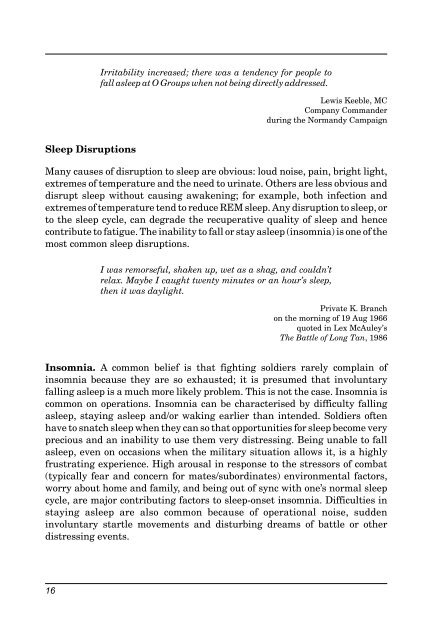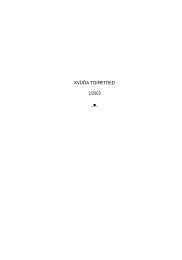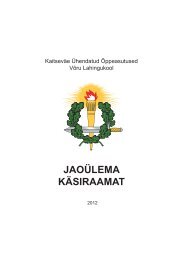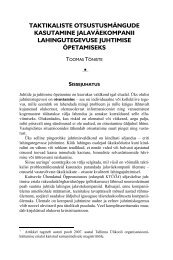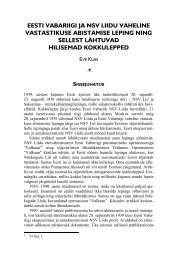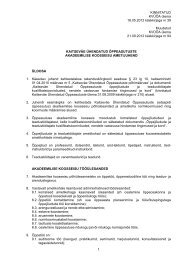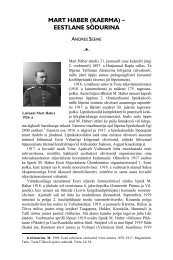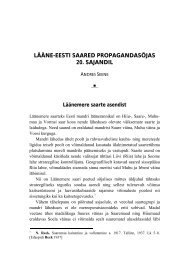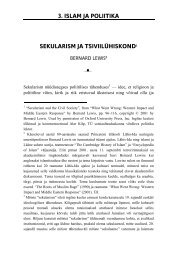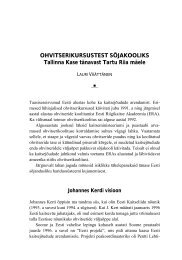Fatigue Management
Fatigue Management
Fatigue Management
Create successful ePaper yourself
Turn your PDF publications into a flip-book with our unique Google optimized e-Paper software.
Irritability increased; there was a tendency for people to<br />
fall asleep at O Groups when not being directly addressed.<br />
Lewis Keeble, MC<br />
Company Commander<br />
during the Normandy Campaign<br />
Sleep Disruptions<br />
Many causes of disruption to sleep are obvious: loud noise, pain, bright light,<br />
extremes of temperature and the need to urinate. Others are less obvious and<br />
disrupt sleep without causing awakening; for example, both infection and<br />
extremes of temperature tend to reduce REM sleep. Any disruption to sleep, or<br />
to the sleep cycle, can degrade the recuperative quality of sleep and hence<br />
contribute to fatigue. The inability to fall or stay asleep (insomnia) is one of the<br />
most common sleep disruptions.<br />
I was remorseful, shaken up, wet as a shag, and couldn't<br />
relax. Maybe I caught twenty minutes or an hour's sleep,<br />
then it was daylight.<br />
Private K. Branch<br />
on the morning of 19 Aug 1966<br />
quoted in Lex McAuley's<br />
The Battle of Long Tan, 1986<br />
Insomnia. A common belief is that fighting soldiers rarely complain of<br />
insomnia because they are so exhausted; it is presumed that involuntary<br />
falling asleep is a much more likely problem. This is not the case. Insomnia is<br />
common on operations. Insomnia can be characterised by difficulty falling<br />
asleep, staying asleep and/or waking earlier than intended. Soldiers often<br />
have to snatch sleep when they can so that opportunities for sleep become very<br />
precious and an inability to use them very distressing. Being unable to fall<br />
asleep, even on occasions when the military situation allows it, is a highly<br />
frustrating experience. High arousal in response to the stressors of combat<br />
(typically fear and concern for mates/subordinates) environmental factors,<br />
worry about home and family, and being out of sync with one's normal sleep<br />
cycle, are major contributing factors to sleep-onset insomnia. Difficulties in<br />
staying asleep are also common because of operational noise, sudden<br />
involuntary startle movements and disturbing dreams of battle or other<br />
distressing events.<br />
16


